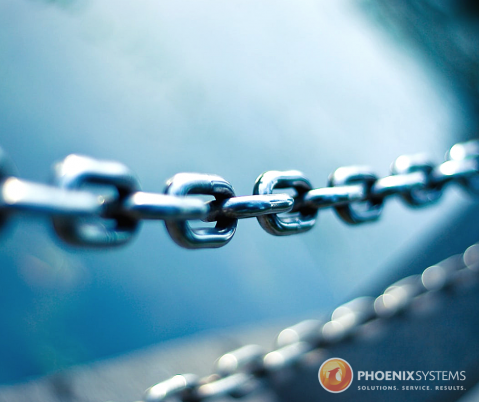It is likely that you think of bitcoin whenever you hear the term "blockchain," and that is because bitcoin is based on a distributed ledger, more specifically, a blockchain. Bitcoin's ledger was the first blockchain ever created; however, the technology has begun to grow outside of bitcoin, and it has spread across the global economy. Why? Blockchain allows you to keep thousand of strangers honest and consistent.
What is a blockchain?
When we use the term blockchain, we are talking about digital information (the "blocks") stored in a pubic database (the "chain").
A single block on a blockchain can store up to 1 MB of data. Blocks can store information such as the date, time, and amount of a recent purchase, as well as who is participating in such a transaction. However, instead of using a customer's real name, blocks store information using a unique "digital signature," similar to a username – keeping people's identity safe on the web.
Each block holds a unique code called a "hash," that allows you to tell it apart from other blocks. Even in transactions that may look identical, it is still possible to tell the two blocks apart. For example, let's say you are online shopping and you just finished paying for the items in your cart. However, when you are about to close the website's window, you run into a deal that you can't resist. Those two purchases will look almost identical: they were made in the same website, within seconds of one other. Still, the blocks will store a different hash, making it possible to tell the two transactions apart.
How does it work?
As the name suggests, blockchain consists of a chain of blocks strung together. Whenever a block stores new data, it is added to the chain. However, in order for it to be added to the chain, four things must occur:
1.The transaction.
2.The transaction must be verified.
3.The transaction must be stored in a block.
4.The block must be given a hash.
Once the block is given a hash (a unique, identifying code), it can be added to the blockchain. Once that happens, the blockchain becomes available for anyone to view – including you.
Is blockchain technology secure?
Once a block is added to the blockchain, it becomes nearly impossible to go back and alter its contents. That is because, as mentioned before, each block holds a unique hash, along with the hash of the block before it. Meaning that, if someone tries to hack into a blockchain and alter information stored in it, they would have to alter every single block inside of that blockchain – which would take up a lot of time and a huge amount of computer power.
Blockchain technology solves the issues of security and trust in several ways, and it might be one of the technologies that will shape our digital future. At Phoenix Systems, we are always thinking ahead, and we hope that this article helps you think ahead too! If you have any questions, please feel free to contact us at This email address is being protected from spambots. You need JavaScript enabled to view it..


